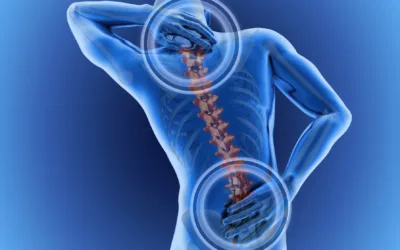Ever wondered if pain relief could come without the baggage of side effects? Imagine a world where managing pain doesn’t mean compromising your well-being with modern medicine. What if there was a natural, holistic approach that offered effective relief without any unwanted repercussions from modern medicine? Homeopathy, a drug-free solution, steps in as the game-changer, providing a side-effect-free solution to alleviate various types of discomfort. By delving into the body’s innate healing abilities, homeopathy offers personalized treatments that target the root cause of pain while ensuring overall well-being. Let’s explore how methods of this alternative medicine practice work to reshape the landscape of pain management for a healthier tomorrow.
Understanding Homeopathy’s Principles
Like Cures Like
Homeopathy operates on the principle of “like cures like.” This means that a substance causing symptoms in a healthy person can treat similar symptoms in an unwell individual. For instance, if someone experiences watery eyes when cutting onions, a homeopathic remedy made from onion might be used to alleviate allergy symptoms.
Homeopathy’s approach involves using highly diluted substances to trigger the body’s natural healing response without harmful side effects. By administering minute doses of substances that would produce specific symptoms in larger amounts, homeopaths aim to stimulate the body’s innate ability to heal itself.
Individualization And Vital Force
In homeopathy, each patient is viewed as unique. The principle of individualization guides practitioners to tailor remedies based on a person’s distinct set of symptoms and characteristics. This personalized approach ensures that treatment aligns closely with the individual’s needs for optimal results.
Moreover, homeopathy places great emphasis on the concept of vital force – an inherent energy within the body responsible for maintaining balance and health. By stimulating this vital force through carefully selected remedies matching the patient’s symptoms, homeopathic treatments aim to restore equilibrium and facilitate healing naturally.
Homeopathy For Pain Management: How It Works
Stimulating Self-Healing Mechanisms
Homeopathic remedies for pain management trigger the body’s healing processes, assisting in reducing pain from within. Rather than just masking pain, homeopathy delves into the root causes of discomfort, offering lasting relief. For example, Arnica montana is a popular homeopathic remedy known for its effectiveness in treating muscle soreness and bruising.
Non-Addictive And Safe
Unlike conventional medications that can lead to dependency issues, homeopathic treatments are non-addictive. They provide a safe alternative to managing pain without the risks associated with long-term use of traditional drugs. Commonly used homeopathic remedies like Rhus tox can help with joint pains and stiffness without causing addiction.
Addressing Underlying Causes
One significant aspect of how homeopathy works in managing pain is by focusing on addressing the underlying reasons behind the discomfort. By targeting these root causes rather than merely alleviating symptoms, homeopathy offers a holistic approach to healing. For instance, Bryonia alba is often used to treat sharp pains worsened by movement due to conditions like arthritis or injuries.
Long-Term Relief
The goal of homeopathic remedies is sustained improvement over time. By stimulating the body’s self-healing mechanisms, these treatments aim to provide long-lasting results instead of quick fixes that wear off rapidly. Aconitum napellus is commonly utilized for sudden intense pains caused by injuries or shock reactions as it helps address both physical and emotional distress.
Pros
- Stimulates self-healing mechanisms
- Addresses underlying causes
- Provides long-term relief
Cons
- Effectiveness varies from person to person
Safety And Side-Effect Profile Of Homeopathic Treatments
Highly Diluted Substances
Homeopathic medicines are known for their high safety profile due to the highly diluted substances they contain. These diluted substances significantly minimize the risk of adverse effects. For example, a homeopathic remedy may start with a plant extract or mineral but undergo dilution processes until only trace amounts remain.
In contrast to conventional drugs, which often cause unwanted side effects due to their chemical composition, homeopathic remedies interact differently within the body because of their high dilution levels. This unique characteristic makes them less likely to trigger allergic reactions or adverse responses in individuals with sensitivities to certain compounds.
Minimal Dosage And Reduced Toxicity
One significant advantage of homeopathy lies in its use of small doses that contain minute quantities of active ingredients. This approach helps reduce the likelihood of toxicity or overdose compared to standard medications where higher doses can lead to harmful consequences. The principle behind this method is based on the belief that smaller doses stimulate the body’s healing mechanisms without overwhelming it.
When treating various health conditions using homeopathic medicines, practitioners focus on providing just enough substance to initiate a response from the body without causing harm. By tailoring treatment regimens around these minimal dosages, individuals benefit from symptom relief while minimizing any potential risks associated with consuming larger amounts.
Regulations Governing Homeopathic Medicines
Worldwide Regulatory Authorities
Homeopathic medicines are closely monitored by regulatory bodies globally to uphold quality and safety standards. These authorities play a crucial role in overseeing the production, labeling, and quality assurance of homeopathic remedies. For instance, the Food and Drug Administration (FDA) in the United States regulates homeopathic products under its Compliance Policy Guide.
Regulatory agencies establish stringent guidelines for the manufacturing processes of drugs, ensuring that they meet specific criteria before being made available to consumers. This meticulous oversight helps maintain consistency in the composition and potency of homeopathic medicines, contributing to their efficacy and safety profiles. By adhering to these regulations, manufacturers can guarantee that their products are free from contaminants or impurities.
Variability Across Countries
The regulation of homeopathic pills varies significantly from one country to another. While some nations classify them as over-the-counter drugs due to their low-risk nature and minimal side effects, others require prescriptions for certain potent formulations. In countries like India, where homeopathy is widely practiced, there are dedicated regulatory bodies such as the Central Council of Homeopathy (CCH) that oversee licensing requirements for practitioners and monitor the quality of medicines available in the market.
Pros:
- Ensures consistent quality control.
- Enhances consumer safety by regulating manufacturing processes.
Cons:
- Stringent regulations may limit access for some individuals.
- Variability in regulations across countries can lead to confusion for consumers.

Choosing A Qualified Homeopathic Practitioner
Qualifications And Experience
When seeking a homeopath, prioritize their qualifications and experience. A competent practitioner should be well-trained, possibly holding degrees or certifications in homeopathy. Experience is crucial; seasoned practitioners often have a deeper understanding of various health conditions and effective treatment methods. Membership in reputable professional organizations indicates adherence to ethical standards and ongoing education.
A qualified homeopath will consider your health condition comprehensively, focusing not only on the symptoms but also on your overall well-being. This approach is holistic, aiming to treat the individual as a whole rather than just addressing isolated symptoms like conventional medicine often does. By taking into account factors such as lifestyle, emotional state, and past medical history, the practitioner can provide personalized care tailored to your specific needs.
Recommendations And Reviews
Seeking personal recommendations from friends or family members who have benefited from homeopathic treatment can be invaluable. Online reviews from trusted sources can offer insights into a practitioner’s effectiveness in managing pain through homeopathy. Positive testimonials highlighting successful outcomes for individuals with conditions like IBS (Irritable Bowel Syndrome) can guide you toward practitioners capable of delivering results.
Pros:
- Personalized approach to healthcare
- Focuses on treating the individual as a whole
- Potential for effective pain management without side effects
Cons:
- Limited range of treatments compared to conventional medicine
- Results may vary depending on individual response
Integrative Medicine: Combining Homeopathy And Conventional Care
Benefits Of Integrative Medicine
Integrative medicine combines homeopathy with conventional medical treatments, offering a holistic approach to healthcare. This integration allows patients to experience the benefits of both methods, leading to comprehensive and effective treatment plans. For example, a patient suffering from chronic pain might benefit from using homeopathic remedies alongside traditional pain management techniques prescribed by their doctor.
Patients undergoing integrative care often report reduced side effects compared to those solely relying on conventional treatments. This is particularly beneficial for individuals experiencing adverse reactions or sensitivities to medications commonly used in conventional medicine. By leveraging the strengths of both approaches, integrative medicine can provide side-effect-free pain management, enhancing the overall quality of life for patients dealing with various health conditions.
Collaboration In Healthcare
In an integrated healthcare setting, collaboration between different types of practitioners is crucial for ensuring that patients receive coordinated and personalized care. Homeopaths working alongside conventional healthcare professionals can combine their expertise to develop tailored treatment plans that address each patient’s unique needs effectively. This collaborative effort fosters a supportive environment where diverse perspectives come together to promote optimal healing outcomes.
Moreover, this collaborative approach extends beyond individual patient care; it also contributes to advancing research and promoting knowledge exchange between various branches of medicine. By sharing insights and best practices, homeopaths and conventional practitioners contribute to the evolution of medical treatment, ultimately benefiting patients across different health conditions.
Scientific Basis Behind Homeopathy
Research Findings
Research into homeopathy has revealed promising outcomes for pain management and overall well-being. Studies have exhibited that homeopathic treatments can deliver specific effects beyond a placebo, showcasing their effectiveness in alleviating pain. For instance, trials on human patients suffering from chronic conditions like arthritis have shown significant improvements in pain levels after receiving homeopathic remedies.
Homeopathy’s ability to provide relief without the side effects commonly associated with traditional medications is a key advantage. Unlike conventional drugs that may cause adverse reactions such as nausea or dizziness, homeopathic remedies offer a safer alternative for individuals seeking pain relief without unwanted consequences. This aspect makes homeopathy particularly appealing to those who are sensitive to pharmaceuticals or wish to avoid potential risks linked with conventional treatments.
Pros:
- Promising results in pain management
- Specific effects beyond placebo
- Safer alternative without side effects
Mechanism Of Action
Although the exact mechanism of action behind homeopathy remains unclear, it is believed to involve the modulation of the body’s immune response and neuroendocrine system. By stimulating the body’s innate healing mechanisms, homeopathic remedies aim to address the root cause of ailments rather than merely treating symptoms superficially. This holistic approach targets not only physical manifestations but also considers emotional and mental aspects contributing to an individual’s well-being.
In cases where traditional medicine may fall short or present limitations due to side effects or contraindications, homeopathy offers a complementary avenue for managing various health issues effectively. The gentle yet potent nature of homeopathic remedies makes them suitable for individuals across different age groups, including children and seniors seeking natural alternatives for addressing pain and discomfort.
What To Expect With Homeopathic Treatment For Pain
Detailed Consultation Process
Homeopathic treatment for pain management begins with a comprehensive consultation. The practitioner will delve into your symptoms, medical history, and lifestyle factors. This detailed information is crucial as homeopathy focuses on treating the individual, not just the disease. By understanding your unique symptom picture, the practitioner can tailor a specific remedy that resonates with your body’s healing mechanisms.
During this consultation, expect questions about not only your physical symptoms but also the emotional aspects that may be contributing to your pain. For instance, if you are seeking relief from rheumatoid arthritis pain, the homeopath may inquire about stress levels or any recent emotional triggers that could be exacerbating your condition.
Individualized Remedies And Healing Process
One of the key principles of homeopathy is prescribing remedies based on each individual’s distinctive symptoms. These remedies are highly diluted substances derived from plants, minerals, or animals aimed at triggering the body’s natural ability to heal itself. It’s essential to understand that in homeopathic treatment for pain management, there might be an initial worsening of symptoms before improvement sets in.
This concept known as “aggravation before amelioration” is a common occurrence in homeopathy. It signifies that as the remedy stimulates the body’s self-healing mechanisms, there could be a temporary intensification of symptoms before experiencing relief. So don’t get discouraged if you notice a brief escalation in discomfort after starting homeopathic treatment; it often indicates that healing processes have been set in motion.
Exploring Homeopathy’s Effectiveness Through Systematic Reviews
Positive Evidence From Systematic Reviews
Systematic reviews of clinical studies consistently show that homeopathy is effective in managing pain. These reviews compile data from various trials to provide a comprehensive overview of the treatment’s efficacy. For example, a recent review published in a reputable medical journal analyzed multiple studies and concluded that homeopathy can indeed offer relief from pain.
Homeopathy’s positive effects on pain management are further supported by the quality evidence presented in these systematic reviews. By examining the methods and results of numerous studies, researchers have been able to establish a strong case for incorporating homeopathic remedies into pain treatment regimens. The robust nature of systematic reviews ensures that conclusions drawn about homeopathy’s effectiveness are based on solid scientific grounds.
- Pro: Comprehensive analysis of multiple clinical trials
- Pro: Strong emphasis on quality evidence
- Pro: Provides a consolidated view of homeopathy’s effectiveness in pain management
Implications For Further Research
Despite the encouraging findings from systematic reviews, there is still room for additional research to enhance our understanding of how homeopathy works in alleviating pain. These reviews often highlight gaps in current knowledge and point toward areas where more investigation is needed. For instance, while existing evidence supports using homeopathy for certain types of pain, further exploration could help optimize its application across different conditions.
The collective evidence derived from systematic reviews underscores the potential value that homeopathy holds as an alternative approach to managing various forms of pain. This highlights the importance not only of building upon existing research but also of exploring new avenues within this field to unlock the full benefits that homeopathic treatments can offer individuals suffering from chronic or acute pain.
- Further research is needed to enhance understanding
- Systematic reviews identify gaps in knowledge
- Potential value as an alternative method for diverse types of pain
Final Remarks
You’ve delved into the world of homeopathy, discovering its principles, benefits for pain management, safety profile, and more. By understanding how homeopathy works and its scientific basis, you’ve gained insights into a holistic approach to healing. As you navigate regulations and seek qualified practitioners, remember that integrating homeopathy with conventional care can offer a well-rounded treatment plan.
Exploring the effectiveness of homeopathy through systematic reviews opens doors to alternative pain management strategies. Embrace the journey of finding what works best for you, whether it’s standalone homeopathic treatments or a blend with traditional medicine. Your health and well-being are paramount—empower yourself with knowledge and make informed decisions to enhance your quality of life.
Frequently Asked Questions
1. Is Homeopathy Safe For Managing Pain Without Side Effects?
Homeopathy offers a safe approach to pain management as it uses highly diluted natural substances that stimulate the body’s healing mechanisms without adverse reactions commonly seen in traditional medications.
2. Can I Combine Homeopathic Treatments With Conventional Medicine For Pain Relief?
Yes, you can integrate homeopathy with conventional care. Integrative medicine combines the strengths of both approaches, offering a holistic treatment plan that addresses your pain from various angles and enhances overall well-being.
3. How Do I Find A Qualified Homeopathic Practitioner For My Pain Management Needs?
When choosing a homeopathic practitioner, look for qualifications, experience, and reviews. Ensure they are certified by reputable organizations and have expertise in treating pain conditions using homeopathy.
4. What Scientific Evidence Supports The Effectiveness Of Homeopathy For Managing Pain?
Despite controversies, some studies suggest positive outcomes with homeopathic treatments for pain. Systematic reviews provide insights into its efficacy. Consult with your healthcare provider to understand if this approach aligns with your needs.
5. Are There Regulations Governing The Use Of Homeopathic Medicines For Pain Management?
Regulations vary by country but generally oversee manufacturing standards and labeling requirements. Look for products approved by regulatory bodies to ensure quality and safety when using homeopathic remedies for managing pain.

Harnessing The Power Of Homeopathy In Pain Management: Experience Relief And Healing With MedicinEvolution’s Innovative Approach!
Are you grappling with chronic pain, sports injuries, or seeking to enhance your overall well-being? MedicinEvolution stands at the forefront of integrating homeopathy with pain management techniques to guide you toward a state of improved health and comfort. By embracing the principles of homeopathy, MedicinEvolution addresses the underlying causes of your pain, promoting a natural and holistic recovery process. Wave goodbye to the challenges of chronic discomfort, sports-related injuries, and the repetitive stress that impedes your daily activities—as MedicinEvolution taps into the unique needs of your body, leading you to significant relief and healing. Their carefully formulated homeopathic treatments are designed to shift you away from the pain and limitations that constrain your quality of life.
If you’re battling with persistent pain, injuries, or obstacles to achieving optimal health, MedicinEvolution’s specialized approach, grounded in the harmony of homeopathy and pain management, is specifically crafted for you. Don’t allow the struggles of chronic pain or injury to set the limits of your well-being—take the step forward and schedule your consultation with MedicinEvolution today! Embark on a journey with their homeopathy-centered treatments and start moving toward a more pain-free, resilient, and health-enhanced life. Your body and mind, liberated from the grips of pain, will be grateful for the transformation!





